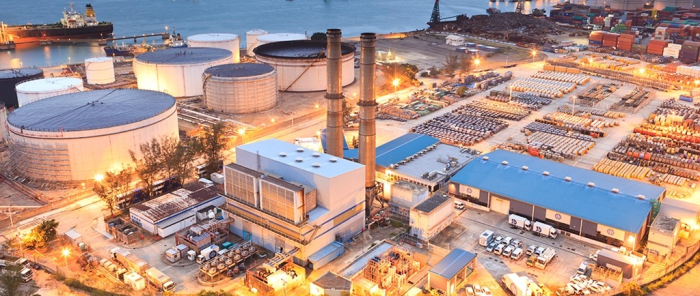Carbon neutrality
SK to invest in S.Korean company for bio jet fuel materials
SK Trading ties up with KDB, Eugen Private Equity to acquire a 100% stake in Daekyung, Korea’s top biofuel materials supplier
By Oct 17, 2023 (Gmt+09:00)
2
Min read
Most Read
LG Chem to sell water filter business to Glenwood PE for $692 million


KT&G eyes overseas M&A after rejecting activist fund's offer


Kyobo Life poised to buy Japan’s SBI Group-owned savings bank


StockX in merger talks with Naver’s online reseller Kream


Meritz backs half of ex-manager’s $210 mn hedge fund



SK Group, South Korea’s energy-to-semiconductor conglomerate, is set to invest in a local renewable energy ingredient provider for stable procurement of raw materials for sustainable aviation fuel (SAF) amid increasing demand for the eco-friendly combustible.
SK Trading International Co., the group’s oil and petrochemicals product trading unit, on Monday inked a deal to buy a stake in Daekyung Oil & Transportation Co. in a consortium with state-run Korea Development Bank (KDB) and domestic private equity firm Eugene PE, according to SK Innovation Co., SK Trading’s parent and the conglomerate’s intermediate holding company.
SK Trading, KDB and Eugene PE plan to establish a special purpose company (SPC) to acquire a 100% stake in Daekyung. SK Trading is poised to hold a 40% stake in the SPC, while the two financial investors are set to take the rest. Other details such as an investment value were not disclosed.
“It is necessary to prepare for the SAF sector in advance for a sustainable jet fuel market tracking SK Innovation’s carbon to green strategy,” said SK Trading CEO & President Suh SokWon in a statement.
“SK Trading will not only invest in Daekyung but is also making efforts at home and abroad to become a professional trading company, which stably supplies SAF to domestic and overseas aviation industries.”
The investment is expected to allow SK Trading to secure raw materials for bio jet fuel, the company said. Daekyung is South Korea’s largest supplier of raw materials produced from animal fats and used cooking oil for biofuels.
PLANES POWERED BY FUELS BASED ON ANIMAL FATS, USED COOKING OIL
Livestock fats and used cooking oil are in the spotlight as key raw materials for bio jet fuel amid the rapid growth of the SAF market. Those ingredients, which no governments regulate in the world, reduce more carbon than vegetable materials such as soybean oil.
SAF made from renewable biomass and waste resources is estimated to reduce up to 80% in carbon emissions over the lifecycle of the fuel compared to the existing jet fuel it replaces, depending on the sustainable feedstock used, production method and the supply chain to airports, according to British oil and gas company BP.
SK Group in 2022 made investments in the US-based Fulcrum BioEnergy, which refines synthetic crude oil to SAF.
Global land transportation industries are increasingly using batteries and fuel cells instead of fossil fuels to protect the environment, but the aviation sector has had to keep relying on liquid combustibles due to the limit in battery density and stability.

The industry is looking for alternatives such as biofuels to cut carbon emissions during flights.
In March, SK Trading invested in Sichuan Jinshang Environmental Protection Technology Co., the Chinese used cooking oil supplier, to secure raw materials of bio jet fuel in the country.
Write to Mi-Sun Kang at misunny@hankyung.com
Jongwoo Cheon edited this article.
More to Read
Comment 0
LOG IN



